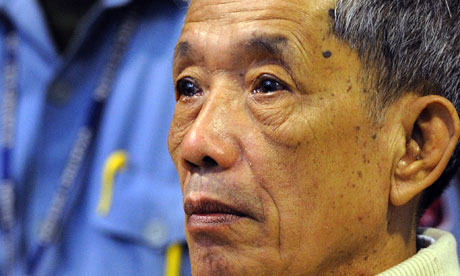By Karen Diep
Impunity Watch Reporter, Asia
BEIJING, China – Yesterday, the National Immigration Agency (NIA) arrested more than 40 smugglers in its operation against the largest known cross-strait human-trafficking syndicate. According to Taipei Times, this syndicate is responsible for smuggling hundreds of Chinese men and women into Canada and Australia.

In 2010, the NIA’s border affairs uncovered evidence linking Feng Sheng-hsing, a former syndicate member, to Wang Cheng-wei, a member of another cross-strait trafficking group.
In 2005, Mr. Feng, using fake passports, smuggled hundreds of Chinese men and women into both Canada and the United States. According to the NIA, Mr. Feng first purchased Republic of China (ROC) passports, searched for those wanting to leave China, and subsequently added the participant’s photograph to the passport.
The agency attested to the syndicate’s 50 successful operations, smuggling one to four people per operation, and its profit of $50,000 to $70,000 per person. Moreover, the syndicate is purportedly the “largest human-trafficking group in Asia, Australia and North America” with estimated profits of $3.34 MM.
Contrary to Feng and Cheng’s eager participants, other syndicates participate in a younger and reluctant market.
On Monday, approximately 10,000 authorities arrested 802 suspects in China for child-trafficking and freed 181 children, who are often sold for adoption or labor. These children were allegedly auctioned off to the highest-bidder for roughly $7,700 each.
In 2011, the Public Security Ministry released a report stating that the police have recovered tens of thousands of abducted women and children. It highlighted a raid against a syndicate trafficking Chinese women into Angola for prostitution that resulted in 19 rescued and 16 arrested.
“We have zero tolerance when it comes to child trafficking and will make the utmost efforts to make sure that every trafficker is caught,” said Chen Shiqu, the ministry’s Anti-Human Trafficking Director.
According to BBC, some believe that child-trafficking is the product of China’s one-child policy and lax adoption laws. It has allegedly created a “thriving underground market,” stated Martin Patience of BBC.
Despite the reason behind its existence, human trafficking remains a profitable and strong market for organized crime.
For further information, please see:
Taipei Times – NIA cracks human trafficking group – 11 July 2012
XinHua News – Police pledge to fight child trafficking – 7 July 2012
BBC News – Chinese police ‘smash’ trafficking gangs frees 181 – 6 July 2012
The Independent – Over 800 held after police break child-trafficking ring – 6 July 2012
Forbes – China Vice Busts Human Trafficking Ring – 23 June 2012


